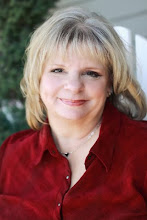 Private independent educational consultants who specialize in at risk students take up where overburdened high school guidance counselors or therapists leave off.
Private independent educational consultants who specialize in at risk students take up where overburdened high school guidance counselors or therapists leave off.Charging by the hour or offering a package of services, these consultants usually meet multiple times with a student (when applicable) and /or family (either in person or on the phone) to talk about goals regarding the current situation.
Educational Consultants synthesize information from parents, teachers, therapists, medical personnel, read transcripts, tests, evaluations and other information to help create a list of best suited programs and schools that might be a good match.
Then they guide the family through the research process, preparing parents on how to interview the program and keeping everyone informed and organized. Most educational consultants spend about 20 percent of their time visiting program and school campuses and interviewing the staff.
One of my clients was Valerie Norman from Maui, Hawaii. She said, “As a parent looking for help for my son and finding someone like Dore Frances, was a true answer to what I needed. I could have researched it all myself, but it was better for me to work a bit more and keep myself occupied so I did not fall apart. It was worth every penny to pay an expert. Dore's strong reassuring voice almost made me drop to my knees the first time we spoke. She helped me know that I didn't fail as a parent, and I was getting help instead of standing by wondering what to do with my out of control son.”
Another of my clients, who is now 18, said, “I don’t think I could have gotten into the best school for my needs without Dore's help." Anthony is now a freshman at college in California.
“She helped me take what I thought were not very nice things about myself, and show me that I was just off track because of the choices I was making.”
Educational consultants need to be “super detailed and organized.” Part of a consultant’s job is to remind parents and students about their goals and desires when going through this process.
I had a student say, "You tell me the same things as my parents did, but I don’t mind when you say it." (Emi G., Illinois)
Some consultants have specialties — working with students with learning disorders, for example, or with colleges in other countries. Consultants may also specialize in navigating the path to private high schools, elementary schools and even nursery schools. Other consultants specialize in addiction treatment centers, or working with those involved in the juvenile justice system.
According to surveys by the Independent Educational Consultants Association, consultants charge an average hourly rate of $160, though the fee in the largest cities may be in the $300-an-hour range. Most prefer to offer a package of services that carry a student from the beginning to the end of their program for a set fee, averaging $3,700 to $7,700.
Educational consulting often comes as a second or third career for many people. I think you need the life experiences, parenting experiences and perspectives of even first hand experience yourself to help teenagers and their parents find a true match. The most common backgrounds are in education and psychology. Some others have been involved in grief counseling or working in the juvenile justice system.
Because there are no licensing requirements, anyone can hang out a shingle and call themselves and Educational Consultant, however, without professional training courses, updated educational courses in various areas of specialty, annual program and school visits, review of accreditation and licensing of programs or participation in professional associations, their services won’t be as well informed or as in-depth as a parent may need for their child. Be sure to ask about this.
Training to become an educational consultant can be found online through the college counselor certificate program at the University of California, Los Angeles, and also by attending regular professional conferences through different organizations. Professional associations, including the Higher Education Consultants Association, the National Association for College Admission Counseling and the Independent Educational Consultants Association, also offer information.
Most professional organizations also ask members to uphold ethics and standards — for example, by not accepting remuneration from any programs or schools for placing students with them.
But educational consultants’ most valuable contribution may be stress reduction for a family, especially when they are in crisis. Taking an emotionally fraught situation and turning it into a time of shared discovery is absolutely the most valuable and enjoyable thing I do. Even when in crisis, going through the process of getting help for your child needs to be an adventure that families enjoy and learn from together. That being said, no other option than long term results are a part of what I strive for with each and every family.
Dore E. Frances, M.A.
Founder, Horizon Family Solutions




No comments:
Post a Comment